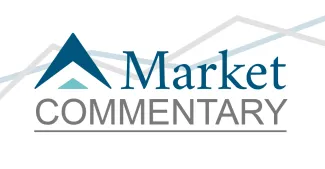
Winter 2021 Market Commentary
By Marc Usem
“The future ain’t what it used to be.” Yogi Berra
I’m sure we can all agree that the best thing about 2020 is that it’s over. We can be fairly certain that in 2019, no one foresaw that 2020 would include a global pandemic accompanied by a shutdown of the economy. We have a tendency to focus on ensuring that the previous crisis (housing market) doesn’t reoccur and thus tend to be unprepared for the next crisis. In fact, the focus at the beginning of 2020 was the trade war with China. So at the start of 2021 the questions we need to ask are: what have we learned from the past and what should we do going forward?
Things that we’ve learned include accepting that market corrections happen with surprising frequency, corrections are difficult if not impossible to predict, and that both the ups and downs tend to be exaggerated. Going forward, we continue to learn that being prepared and patient in times of turmoil tends to lead to the best outcomes. This is also where financial planning can help, to provide the comfort to be patient by being prepared for uncertainty: holding a diversified, tax efficient, global portfolio; holding sufficient cash and bonds for withdrawals; regularly rebalancing a portfolio to control risk; reviewing retirement plans; planning for tax efficiency; and making sure insurance and estate plans are in order.
2020 held the 3rd major market correction in the last 20 years. Our prediction is that market corrections will continue in the future, as they have in the past. The real challenge is knowing how to manage your assets before, during, and after a market correction. During a market correction, it can be easy to stay on the sidelines. Is it not logical to want to protect your money under the assumption that the correction will continue? Even more common is the belief that there may be a better time to invest in the future, when markets are more calm. The problem is that no one knows the duration or magnitude of a market correction or recovery. Just as no one predicted the pandemic and market drop, no one predicted the massive recovery, which was followed by a further market rally to new record highs during November and December. Keep in mind that while this recovery lasted mere months, it took about five and half years to recover from the 2007-2008 financial crisis. It is for precisely this reason that we remain steadfast in our belief that time in the market is much more important than market timing.
We remain cautiously optimistic that markets will remain buoyant, given several major factors that point to continued economic recovery: ongoing Covid-19 vaccine distribution, global monetary and fiscal stimulus, and pent up demand for consumer spending. Our plan is to stay disciplined and focus on things we can control, such as the level of portfolio risk and diversification. Behind the mutual funds and ETFs are real companies producing goods and services, many of which also generate dividends. We don’t know what the next 12 months will bring, but we do know that the stock market, at some time, will correct again, and we will continue to be vigilant to protect the assets you’ve worked so hard to accumulate over time, as well as participate in the overall market growth.
To paraphrase author Damian Barr, while we have all been in the same storm, we have ridden through it on different boats. We wish you and your families a better 2021.
Thank you for your continued confidence in our work.
The views represented in this commentary are not meant to be construed as advice, testimonial or condemnation of any specific sector or holding. Investors cannot invest directly in an index. Unmanaged indexes do not reflect management fees and transaction costs that are associated with some investments. Past performance is no guarantee of future results. To discuss any matters in more detail, please contact your financial advisor.

